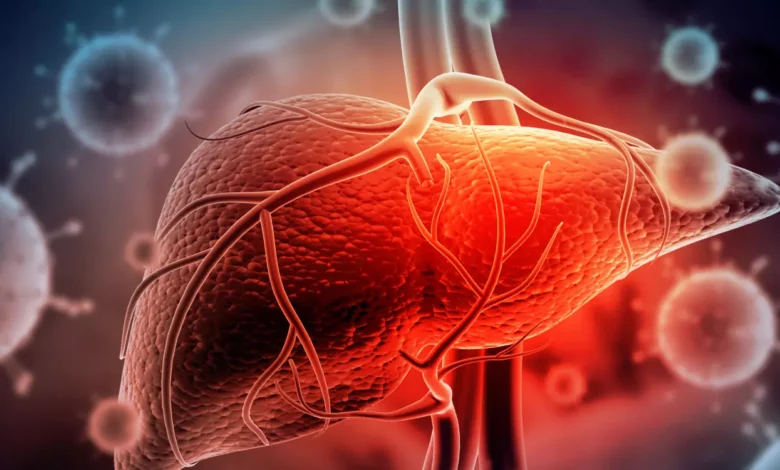Hepatitis: Causes, Symptoms & Treatments in 2023

Hepatitis is a medical condition characterized by inflammation of the liver. Various factors, such as viral infections, alcohol consumption, medications, and autoimmune disorders, can cause it. Understanding the causes, symptoms, and treatments for hepatitis is crucial for effectively managing this condition in 2023. This article will explore the different types of hepatitis, transmission modes, and their impacts on individuals. By gaining knowledge about hepatitis, you can take proactive measures to prevent its occurrence and ensure early detection and appropriate treatment.
Read More: 9 Healthy Habits for Kidneys in 2023
Understanding Hepatitis
What is Hepatitis?
Hepatitis refers to the inflammation of the liver, which can impair its normal functioning. Viral infections typically cause it, although other factors, such as alcohol abuse and certain medications, can also contribute to the development of hepatitis. The condition can range from mild to severe, and it is crucial to identify and manage it promptly.
Types of Hepatitis
There are several types of hepatitis, including:
- Hepatitis A: Transmitted through contaminated food and water.
- Hepatitis B: Primarily transmitted through contact with infected blood or body fluids.
- Hepatitis C: Mainly transmitted through blood-to-blood contact, often associated with intravenous drug use.
- Hepatitis D: Occurs in individuals already infected with hepatitis B.
- Hepatitis E is transmitted through contaminated food and water, particularly in developing countries.
Modes of Transmission
Hepatitis can be transmitted through various means, depending on the specific type of virus. Common modes of transmission include:
- Direct contact with infected blood or bodily fluids.
- Consumption of contaminated food or water.
- Unprotected sexual contact.
- Sharing needles or other drug paraphernalia.
- From mother to baby during childbirth.
Causes of Hepatitis
Viral Infections
Viral infections are the leading cause of hepatitis. Hepatitis A, B, C, D, and E viruses can all result in liver inflammation and subsequent damage. These viruses differ in their modes of transmission, severity, and long-term effects.
Alcohol Consumption
Excessive and chronic alcohol consumption can lead to alcoholic hepatitis. Prolonged alcohol abuse damages liver cells, causing inflammation and scarring. If untreated, alcoholic hepatitis can progress to more severe liver conditions, such as cirrhosis.
Medications and Toxins
Certain medications, toxins, and chemicals can induce hepatitis. These include over-the-counter drugs, prescription medications, and herbal supplementExposure to industrial chemicals, environmental toxins, and autoimmune disorders can also contribute to liver inflammation.
Autoimmune Disorders
In some cases, the immune system mistakenly attacks the liver, resulting in autoimmune hepatitis. This condition occurs when the body’s immune response targets healthy liver cells, leading to inflammation and potential liver damage.
Symptoms of Hepatitis
Hepatitis can manifest with various symptoms, varying in severity and duration. Common signs and symptoms include:
Fatigue and Weakness
Individuals with hepatitis often experience persistent fatigue and weakness. This can significantly impact daily activities and the quality of life.
Jaundice
Jaundice is characterized by yellowing of the skin and eyes. It occurs when the liver cannot effectively process bilirubin, a yellow pigment produced by the breakdown of red blood cells.
Abdominal Pain
Many people with hepatitis experience abdominal pain and discomfort. This can range from mild to severe and may be accompanied by bloating or tenderness.
Loss of Appetite
Hepatitis can cause a significant loss of appetite, leading to unintended weight loss and malnutrition. Proper nutrition is crucial for supporting liver health and overall well-being.
Nausea and Vomiting
Nausea and vomiting are common symptoms of hepatitis, particularly during the early stages of infection. These symptoms can contribute to dehydration and electrolyte imbalances.
Diagnosing Hepatitis
Diagnosing hepatitis involves medical history assessment, physical examination, and diagnostic tests. Some common methods used to diagnose hepatitis include:
Medical History and Physical Examination
A healthcare provider will review the individual’s medical history, including any risk factors or exposure to viral infections, alcohol consumption, and medication use. They will also conduct a physical examination to assess the liver’s size, tenderness, and overall condition.
Blood Tests
Blood tests are crucial for diagnosing hepatitis. These tests can determine the presence of specific antibodies, antigens, or viral genetic material in the blood, providing insight into the type and severity of hepatitis.
Imaging Techniques
Imaging techniques such as ultrasound, CT scan, or MRI can help evaluate the liver’s structure and identify any abnormalities or signs of liver damage.
Liver Biopsy
Sometimes, a liver biopsy may be performed to assess the extent of liver inflammation and damage. This procedure involves removing a small sample of liver tissue for microscopic examination.
Treatments for Hepatitis
The treatment options for hepatitis depend on the condition’s underlying cause, type, and severity. Some common treatment approaches include:
Antiviral medications are often prescribed for viral hepatitis, such as hepatitis B and C. These medications help suppress viral replication, reduce liver inflammation, and prevent further liver damage.
Supportive Care
Supportive care aims to manage the symptoms and complications associated with hepatitis. This may include rest, adequate hydration, proper nutrition, and medications to alleviate specific symptoms like nausea or pain.
Liver Transplantation
In severe cases of hepatitis, where the liver is extensively damaged and fails to function properly, a liver transplant may be necessary. This procedure involves replacing the diseased liver with a healthy liver from a donor.
Prevention and Lifestyle Tips
Prevention plays a crucial role in reducing the risk of hepatitis. Some preventive measures and lifestyle tips include:
Vaccination
Vaccination is available for hepatitis A and B. It is recommended to follow the immunization schedule and ensure proper vaccination to reduce the risk of infection.
Safe Practices
Practicing safe sex, using barrier methods, and avoiding sharing needles or other drug paraphernalia can significantly reduce the risk of contracting hepatitis.
Alcohol Moderation
Limiting alcohol consumption is essential for preventing alcoholic hepatitis and other alcohol-related liver diseases. It is advisable to adhere to recommended alcohol limits or abstain from alcohol altogether.
Medication Awareness
Understanding the potential side effects and risks associated with medications is crucial. Always follow the prescribed dosage and consult a healthcare professional if any concerns arise.
Healthy Diet and Exercise
Maintaining a balanced diet of fruits, vegetables, whole grains, and lean proteins supports overall liver health. Regular exercise helps maintain a healthy weight and enhances liver function.
Read More: Dangerous Diseases in Summer 2023 & Their Treatment
Conclusion
Hepatitis is a widespread medical condition that can significantly affect liver health. By understanding the causes, symptoms, and available treatments, individuals can take proactive steps to prevent and manage hepatitis effectively. It is essential to prioritize prevention strategies, maintain a healthy lifestyle, and seek medical attention for early diagnosis and appropriate treatment.
FAQs
What are the different types of hepatitis?
Hepatitis can be classified into types A, B, C, D, and E, each caused by different viruses.
Is hepatitis contagious? Certain types of hepatitis, such as hepatitis A, B, and C, can be contagious and spread through various means.
Can hepatitis be cured?
Hepatitis can be managed and, in some cases, cured. The treatment approach depends on the type and severity of hepatitis.
How can hepatitis be prevented?
Hepatitis can be prevented through vaccination, practicing safe sex, avoiding sharing needles, maintaining a healthy lifestyle, and following proper hygiene practices.
What are the long-term effects of hepatitis?
If left untreated or poorly managed, hepatitis can lead to liver damage, cirrhosis, liver failure, and an increased risk of liver cancer.







